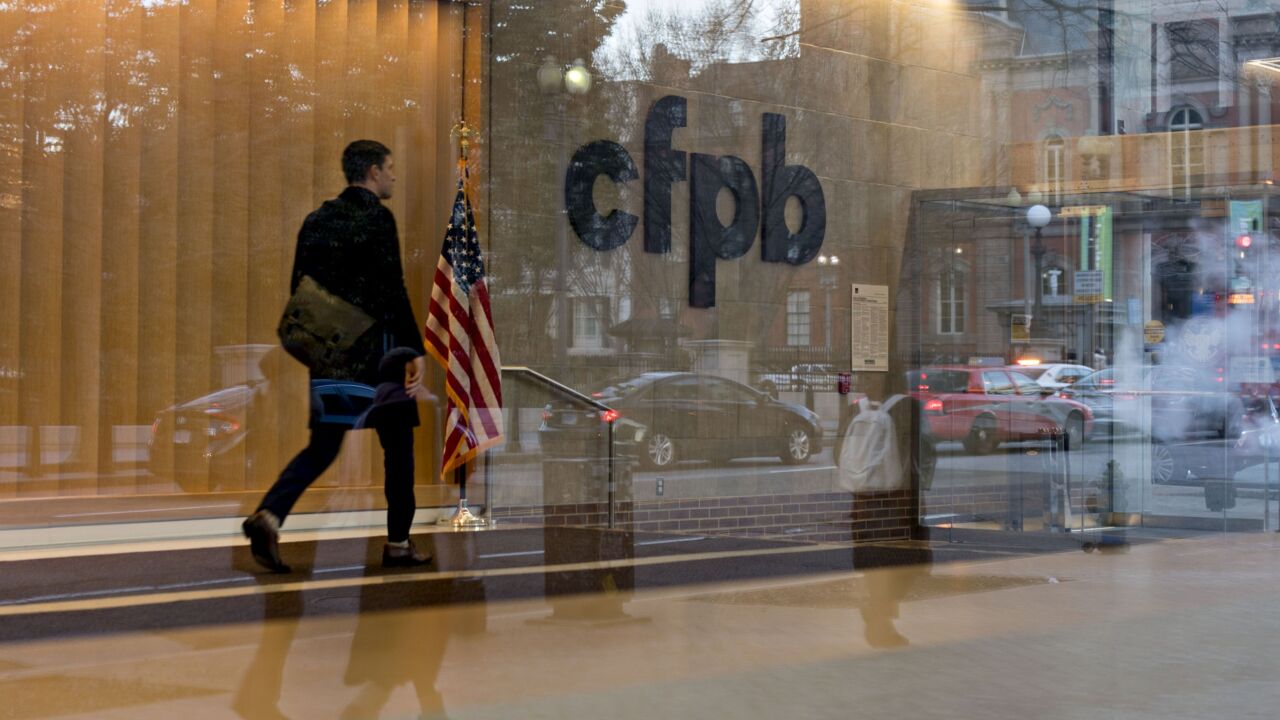Correction: An earlier version of this story mistakenly credited multiple quotes from a motion by Townstone's lawyers to U.S. District Judge Franklin U. Valderrama. American Banker regrets those errors, which have been corrected.
A federal judge has dismissed a redlining lawsuit filed by the Consumer Financial Protection Bureau against a Chicago mortgage lender, rejecting the bureau's argument that a key anti-discrimination law protects prospective borrowers.
On Friday, Judge Franklin U. Valderrama of the U.S. District Court for the Northern District of Illinois
The CFPB had argued that Townstone President and CEO Barry Sturner's remarks on a radio show discouraged prospective borrowers in Chicago from applying for mortgages. The judge said the claim that such remarks violated the equal credit act was an overreach.
"The CFPB's authority to enact regulations is not limitless," Valderrama wrote in his decision. "The plain text of the ECOA thus clearly and unambiguously prohibits discrimination against applicants, which the ECOA clearly and unambiguously defines as a person who applies to a creditor for credit."
He continued: "The Court therefore finds that Congress has directly and unambiguously spoken on the issue at hand and only prohibits discrimination against applicants. As such, 'that is the end of it.' "

Valderrama, a Trump appointee, strongly argued that the CFPB was not entitled to "
Valderrama delved into the issue of whether Regulation B, which implements the equal credit act, includes a specific anti-discouragement provision for prospective applicants. Reg B generally prohibits lenders from discouraging home loan applicants including those that apply in-person at a branch or over the phone.
"The practice of limiting credit to individuals based on criteria other than creditworthiness is as odious as it is offensive," he wrote. "However, the Court is duty-bound to follow precedent, which means the Court can only defer to an agency's interpretation of a statute, no matter how laudable its purpose, when it survives the two-step Chevron framework. The anti-discouragement provision of Regulation B with respect to 'prospective applicants' does not survive Chevron step one, so the Court does not defer to the CFPB's interpretation."
The dismissal of the CFPB's case may have a limited impact, some experts said, largely because the Department of Justice and the Department of Housing and Urban Development are the two main federal agencies that typically file redlining cases under ECOA and the Fair Housing Act.
The CFPB declined to comment on whether it plans to appeal. The case was dismissed with prejudice, meaning the CFPB cannot file the same case again.
The consumer agency alleges Townstone Financial's CEO and president made statements on a radio show discouraging applicants living in Black neighborhoods from seeking home loans.
Lawyers for Townstone said the ruling could have an impact beyond fair lending cases. Steve Simpson, senior attorney at Pacific Legal Foundation, noted the court's refusal to give deference to the CFPB.
"It kind of drives a truck through the centerpiece of what the CFPB — and by extension the DOJ — have used in a lot of their fair-lending cases, which we call 'marketing discrimination,' because it's a ridiculous legal theory," Simpson said. "But even beyond that, the case has implications for administrative law and separation of powers cases going on across the country, even outside the fair-lending context."
The CFPB's investigation of Townstone began in 2017 and the company says it had to downsize from a mortgage lender to a mortgage broker because of the cost of five years of defending itself, lawyers said.
"It took so many resources to fight this government overreach," said Richard Horn, co-managing partner at Garris Horn LLP, who represents Townstone. "The power to investigate is the power to destroy, and government overreach has a huge impact on companies."






